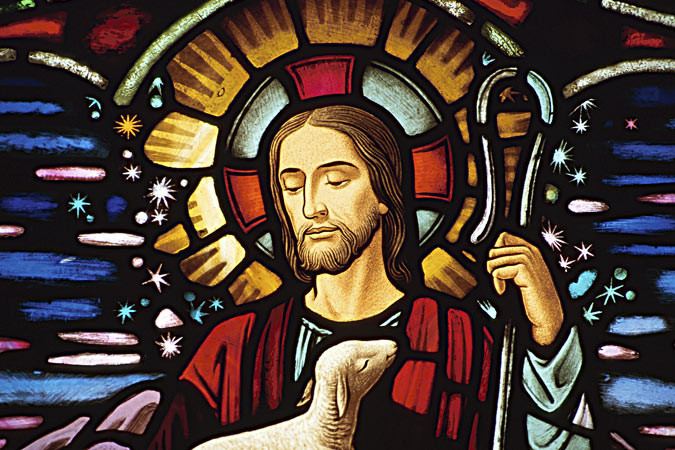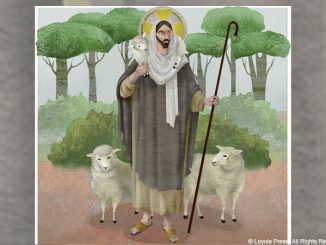
This coming Sunday, we will hear a number of references to the “shepherd” in the Liturgy of the Word. The First Reading (Jeremiah 23:1–6) speaks of the shepherds who are scattering the flock. The Responsorial Psalm speaks of the shepherd who leads us to green pastures. In the Gospel, Jesus has compassion for the huge crowds because they are like sheep without a shepherd.
Pope Francis reminds us that this image of a shepherd and sheep is not about having a warm fuzzy feeling. He reminds us that a shepherd smells like the sheep and that anyone who ministers to others—shepherds—is to have the smell of their sheep.
Shepherds are the equivalent of cowboys in the Old West. They are rough and gritty, working under often difficult conditions to tend to cattle. (I can’t help but think of “Curly” from City Slickers.) I offer this image, not to dismiss the shepherd image, but to re-visit it. We too often sentimentalize images of Jesus. To think of Jesus as the Good Cowboy is to return to the intent of the shepherd image.
Cowboys risk great danger to tend to their cattle. In the Old West, they would fight off bandits, engaging in gunfire and risking death. Jesus engaged the forces of evil to protect us. He “took a bullet” meant for us. Imagine how we would feel about someone who jumped in front of a bullet meant for us. We would be eternally grateful. In the same way, we are eternally grateful for Jesus, our shepherd, who laid down his life to protect us.
Shepherds most often cared for their sheep, not to lead them to slaughter to make food, but to provide wool. Because of this, they genuinely cared for their sheep, protected them, and spent a lifetime with them. In turn, the sheep came to know the sound of the shepherd’s voice. We call Jesus Good because we know that his care for us is genuine.
To think of Jesus as our Good Shepherd we must avoid sterilizing or romanticizing a concept that is intended to have some connection to our daily lives. Jesus is with us when life is most gritty, fighting off that which endangers us (with his rod) and yanking us back into the fold (with his staff)—all because he genuinely cares for us and knows that we have great value.





thanks Joe this is a very helpful insight